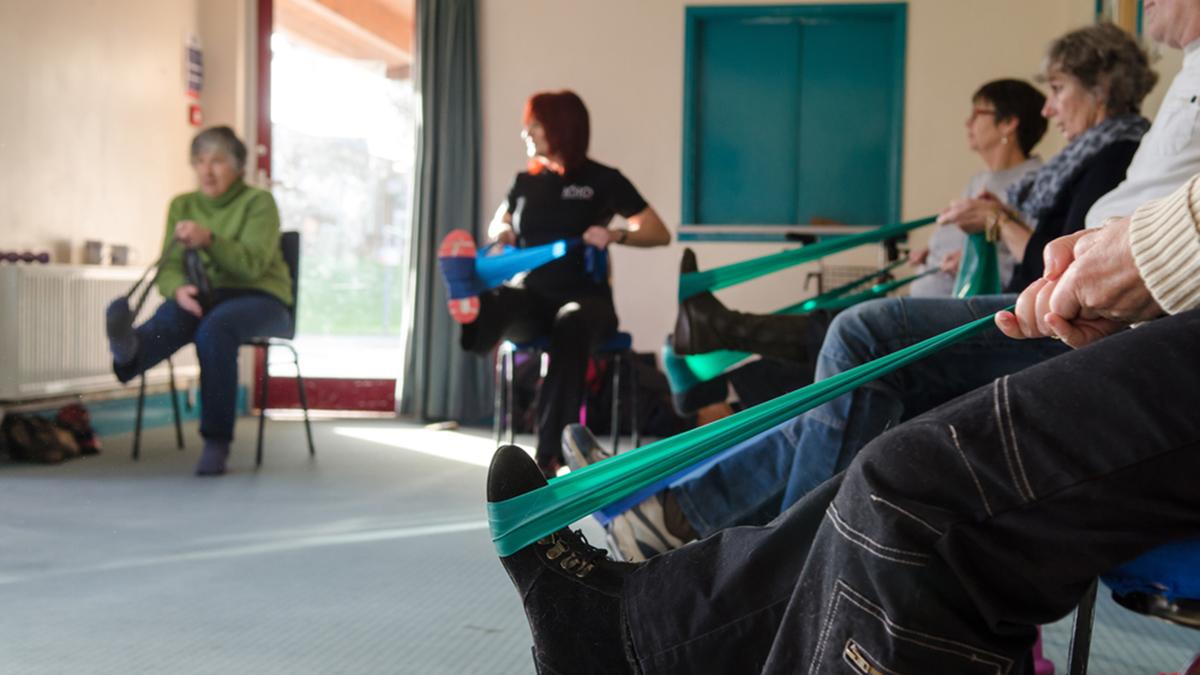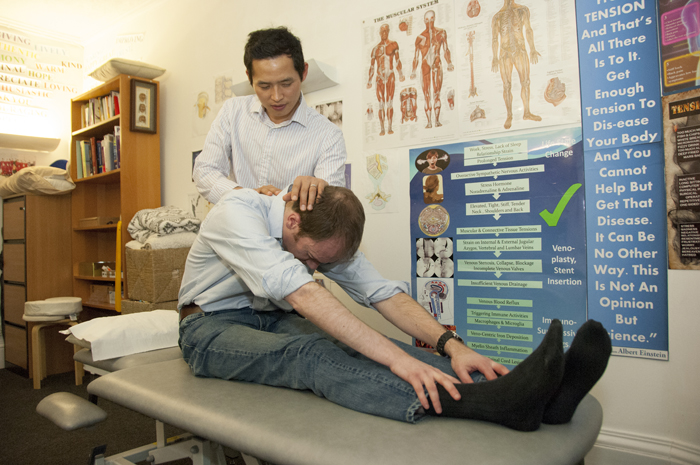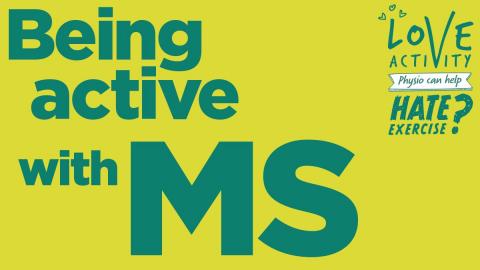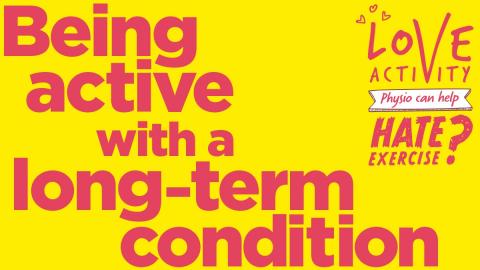Multiple sclerosis (MS) affects around 100,000 people in the UK. There are different types of MS and some people are more severely affected than others. This summary explains how physiotherapy can help.
On this page:
What is multiple sclerosis?
MS is a neurological condition and is the result of damage to myelin, which protects the nerve fibres of the central nervous system. Symptoms can include fatigue, depression, cognitive problems, loss of sight and mobility.
Exactly what causes MS is unclear. Most experts think a combination of genetic and environmental factors is involved.

How can physiotherapy help?
Physiotherapy can help with physical independence, flexibility, strength and fitness. It can also improve your chances of staying in employment and reduce the effect MS can have on your general health and quality of life.
A physiotherapist can offer advice and practical tips on current movement problems, as well as new ones as they arise. Physiotherapy is particularly useful if your symptoms change and during a ‘remission phase’ after a relapse.
Physios often run groups for people with MS. As well as skilled support from the physio, these offer group exercise, peer support and encouragement.
There is strong evidence that exercise, used as part of a rehabilitation programme, can increase activity and improve the health and well-being of people with MS. Recent evidence also shows that physios, as part of a specialist neuro-rehabilitative service, have a key role to play in managing specific symptoms of MS.
Physios are the third largest health profession after doctors and nurses.
What will happen when I see a physiotherapist?
When you see a physio, they will assess your problem and give you advice. Some physios are highly-skilled in neurological conditions, so check you are seeing a specialist. They may give you a physical treatment. Everything you tell the physio will be completely confidential.
So that your physio can have a good look at how you move, they may need you to remove some clothes. It’s a good idea to dress comfortably and wear suitable underwear.
How can I help myself?
Eating a balanced diet and trying to stay as active as possible can help your general health. Joining a gym is a good way to keep active. Find a gym with staff who are encouraging and give you a flexible exercise programme.
A physio can advise you on exercises for any bladder problems, pain, muscle spasms and stiffness that you may develop. They can also design a gym programme tailored to your needs.
The MS Trust has a useful free guide to self-management on their web site. This covers matters such as coping with the news you have MS, relapses, exercise and diet.
Top tips for multiple sclerosis care
- Work on having good posture, to help with your breathing. Good posture also helps relieve aches and with your arm, leg and body movement.
- Find daily activities you enjoy to help prevent stiffness.
- If you can, use walking as a work-out. This will help with your balance and stamina as well as your walking.
- See a physio as soon as you start to experience new physical symptoms.
- Join a MS support group.
- Regular exercise can reduce your fatigue levels.
- Register on-line with the UK MS Register to support research into the condition
Guidance and evidence for physiotherapy
- For health professionals: Physiotherapy Works: Multiple Sclerosis
Links and further information
- NHS Choices: Multiple sclerosis: types of multiple sclerosis, symptoms and possible causes.
- MS Society: UK charity for people with MS, families and carers.
- MS Trust: UK charity for anyone affected by MS.









































